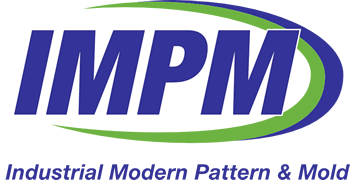IMPM has in-house capabilities to produce aluminum and P-20 tools. We have a full tool room, including in-house CNC and EDM to create small rib details and side actions in any tool construction you choose. Tooling at IMPM allows you to closely monitor your production schedule as your design team will be working directly with the tool fabricators and molders, as it is all done under one roof. This gives you the option of turning your “prototype” tool into a production tool, with some simple planning at the front end of your project.
To further prove our customer’s design, IMPM will manufacture prototype tools from aluminum and not just silicone. These tools typically produce anywhere from one hundred parts to tens of thousands, giving customers more data to validate the final design and prepare for high-volume production. A properly planned and executed aluminum tooling program will result in faster tool construction and overall reduced tooling costs. In addition to aluminum tooling, IMPM also offers P20 steel tooling for production quantities that are much higher. With three full sized CNC machines, one mini mill, multiple lathes, an EDM machine, grinders, drill presses, and standardized mold bases at our use, we are able to fabricate and turnaround aluminum molds much quicker than steel production molds. The old saying goes that time is money, and this tooling process is the best way to drastically cut on the time it takes for your project to go from design to having production parts in hand.
Benefits of Aluminum Tooling
- Easier to cut than steel, which allows faster machining and shorter lead times
- Cools faster than steel, reducing cycle times
- Can be polished more rapidly
- Aluminum is lighter than steel, allowing it to be machined on smaller equipment
- Aluminum dissipates heat at a very even rate, which allows for great dimensional stability due to less distortion
- Can yield quantities high enough to meet any bridge production needs



Applications for Aluminum Tooling
- Field Testing on Production Materials
- UL Approval Prior to Completion of Production Tools
- Low Quantity Production
- Shrinkage Evaluation of Production Material
- Accelerated Life Testing
- Accommodate Products with Short Product Lives
Benefits of P20 Steel Tooling
- P20 is a harder, stronger and more abrasion-resistant material, allowing a longer shot life
- Able to run higher part quantities
Bridge Tooling
Bridge tooling, or rapid tooling, is the molding process used between the end of product development and the beginning of production. Why might a company utilize bridge tooling? Often a company will be in a situation where prototypes have been approved and production tooling has been sourced, however, traditional production tooling (typically steel tooling) is a very untimely process. This becomes an issue when demand is present but supply is distant. Less traditional molding methods, such as silicone tooling and aluminum tooling, are then utilized to bridge the supply gap. Immediate demand is now serviced until production tooling is ready to run.
Aluminum tooling is a mold-making method used for low volume injection molding. Since aluminum is no where near as hard as steel, an aluminum mold can be machined in a fraction of the time. The tooling process is nearly identical to standard steel tooling, but allows for molds to be run in injection molding presses far earlier, getting product into the market much faster. This process is ideal for quantities that range from a couple hundred to a couple hundred thousand.

